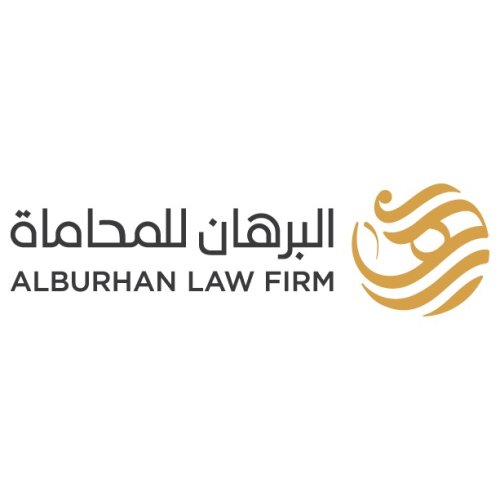
Best Private Client Lawyers in Riyadh
Share your needs with us, get contacted by law firms.
Free. Takes 2 min.
List of the best lawyers in Riyadh, Saudi Arabia

About Private Client Law in Riyadh, Saudi Arabia
Private Client law in Riyadh, Saudi Arabia, encompasses a broad range of legal services tailored to individuals, families, and high-net-worth clients. This field primarily addresses personal legal matters such as estate planning, wills, trusts, succession, family governance, asset protection, guardianship, and tax planning. Practitioners in this area offer specialized advice that takes into account the unique legal framework of Saudi Arabia, which is rooted in Islamic Sharia law and various national regulations. These services are especially vital in Riyadh, given its status as the capital and economic hub, attracting both Saudi nationals and expatriate residents seeking to manage, protect, and transfer their wealth effectively and in compliance with local law.
Why You May Need a Lawyer
Engaging a lawyer in the Private Client domain is crucial for several key reasons. Common situations where you may require legal help include:
- Drafting or updating a will according to Sharia and local succession laws
- Setting up trusts or family offices to ensure long-term asset protection and smooth inheritance
- Administering estates and managing probate processes, especially when cross-border assets are involved
- Resolving inheritance disputes among family members
- Planning for tax efficiency, including the legal structuring of assets
- Advising expatriates on local regulations affecting their personal wealth and succession rights
- Establishing guardianships or powers of attorney for minors or dependents
- Navigating family business succession and governance issues
- Addressing charitable giving, endowments, and compliance with philanthropic regulations
- Representing clients before courts or regulatory bodies in personal legal matters
Legal expertise ensures your plans are valid under Saudi law, avoids costly mistakes, and minimizes family conflict down the road.
Local Laws Overview
Private Client matters in Riyadh are primarily governed by Sharia law, which forms the backbone of the Saudi legal system. Key aspects to consider include:
- Inheritance and succession are subject to strict Sharia principles, which dictate specific shares for heirs
- Wills (wasiyyah) can only dispose of up to one-third of a person's estate to non-heirs
- Trust structures are not recognized in the same way as in some Western jurisdictions, but similar arrangements can sometimes be established
- Guardianship and competency matters are closely regulated and require court approval
- There is no local inheritance or gift tax, but international taxation may apply for expatriates or cross-border assets
- Expatriates face legal limitations on property and inheritance, with special rules often applying for non-Muslims
- Business and real estate ownership structures for family assets have specific legal requirements
- Family law is closely intertwined with Private Client matters, particularly in issues of succession and marital property
Working with a knowledgeable lawyer ensures compliance with these regulations and helps individuals structure their affairs appropriately.
Frequently Asked Questions
What is the process for creating a legally valid will in Saudi Arabia?
To create a valid will in Saudi Arabia, the will must be written in compliance with Sharia law and cannot conflict with statutory inheritance rules. The will must also be witnessed according to legal requirements. It's advisable to seek legal advice to ensure compliance and avoid disputes.
Can foreigners own property and pass it on to heirs in Riyadh?
Expatriates can own property in specific developments designated for non-Saudis, but inheritance and transfer of such property are subject to both Saudi law and restrictions applicable to non-citizens. Legal advice is essential for structuring property ownership and succession.
How does Sharia law impact inheritance?
Sharia law dictates fixed shares of an estate to eligible heirs, and these rules are strictly enforced in Saudi Arabia. A person cannot overrule these shares through a will, except in certain limited cases where up to one-third can be distributed to non-heirs.
Are trusts recognized in Saudi Arabia?
Traditional trusts as recognized in Western legal systems are not part of the Saudi legal framework. However, similar arrangements for asset management and succession can sometimes be created with careful legal structuring.
What happens if there is no will?
If a person dies intestate, Saudi courts will distribute the estate strictly according to Sharia inheritance rules, with each legal heir receiving their prescribed share.
Do succession and inheritance laws apply the same way to non-Muslims?
Generally, Sharia-based succession laws apply to all residents in Saudi Arabia. However, non-Muslims may have specific considerations, and their home country’s laws could be taken into account, especially for immovable assets located abroad.
How are business assets inherited?
Business assets are subject to the same inheritance laws as personal property. Careful corporate structuring and legal planning are needed to ensure business continuity and avoid disputes among heirs.
What is the role of the Saudi courts in inheritance cases?
Saudi courts oversee the administration of estates, determine heirs and their shares, certify wills, and resolve disputes. All inheritance matters must be processed through the court system.
Is there any inheritance tax in Saudi Arabia?
There is no inheritance or estate tax in Saudi Arabia. However, international taxation may apply to assets located abroad or for foreign nationals.
Can I appoint a guardian for my children in my will?
Yes, you can nominate a guardian for your minor children in your will. However, final approval is subject to the court’s discretion and must comply with Sharia and Saudi regulations.
Additional Resources
If you need further information or assistance regarding Private Client matters in Riyadh, the following resources can be helpful:
- Saudi Ministry of Justice - Provides access to legal procedures, courts, and notary services
- General Authority of Zakat and Tax - Assists with questions on tax compliance for individuals and estates
- Chamber of Commerce and Industry in Riyadh - Offers services related to family businesses and corporate structuring
- Licensed local law firms with expertise in Private Client law
- Legal Aid organizations - May offer guidance and resources for individuals needing legal support
It is always best to consult an accredited law firm or legal professional for advice tailored to your circumstances.
Next Steps
If you require legal guidance in Private Client matters in Riyadh, follow these recommended steps:
- Identify your specific needs - such as estate planning, inheritance, or asset protection
- Collect relevant documents - including identification, asset records, or previous wills
- Schedule a consultation with a qualified lawyer experienced in Private Client law
- Discuss your goals, concerns, and any family or business circumstances affecting your plans
- Work with your lawyer to draft or update documents legally and in accordance with Saudi regulations
- Review and store your legal documents securely
- Reassess your arrangements periodically or when major life changes occur
Engaging a knowledgeable Private Client lawyer ensures your affairs are managed properly and gives you peace of mind for the future.
Lawzana helps you find the best lawyers and law firms in Riyadh through a curated and pre-screened list of qualified legal professionals. Our platform offers rankings and detailed profiles of attorneys and law firms, allowing you to compare based on practice areas, including Private Client, experience, and client feedback.
Each profile includes a description of the firm's areas of practice, client reviews, team members and partners, year of establishment, spoken languages, office locations, contact information, social media presence, and any published articles or resources. Most firms on our platform speak English and are experienced in both local and international legal matters.
Get a quote from top-rated law firms in Riyadh, Saudi Arabia — quickly, securely, and without unnecessary hassle.
Disclaimer:
The information provided on this page is for general informational purposes only and does not constitute legal advice. While we strive to ensure the accuracy and relevance of the content, legal information may change over time, and interpretations of the law can vary. You should always consult with a qualified legal professional for advice specific to your situation.
We disclaim all liability for actions taken or not taken based on the content of this page. If you believe any information is incorrect or outdated, please contact us, and we will review and update it where appropriate.
Browse private client law firms by service in Riyadh, Saudi Arabia
Riyadh, Saudi Arabia Attorneys in related practice areas.














